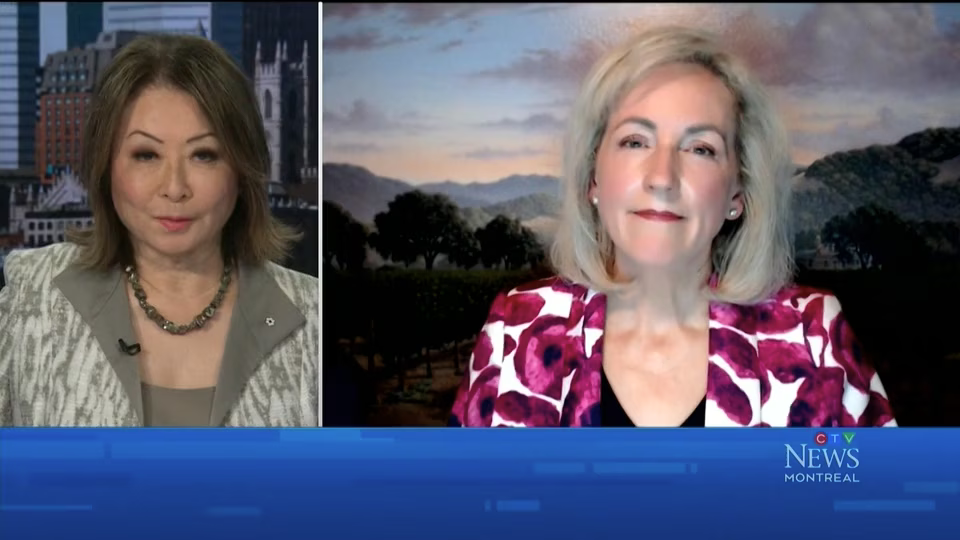I’ve been reporting on the economic and environmental impact wildfires have on the wine industry. My hope is that this raises awareness among consumers for both the importance of fire safety in wine country and the need to support these wineries as they struggle to recover from these events. Here’s the latest segment on CTV News with anchor Mutsumi Takahashi.
Wildfire season has already begun and it’s hit Alberta and British Columbia hard. Last year, wildfires were also hard on B.C.’s wine country.
So what do the wildfires mean for Canada’s wine industry this year and going forward?
Our resident wine expert, Natalie MacLean, joins us now with a report.
Where are the current wildfires in relation to wine country?
Although there were several small wildfires in April near Oliver in the Okanagan Valley, the heart of BC wine country, they have since been contained.
The current wildfires near Fort Nelson are about 1,400 kilometres away. However, given the current dry conditions, those in wine country are bracing for wildfires that could be worse than last year.
Why have the wildfires started so early this year, and how is the weather in general affecting the vineyards?
The wildfires have started earlier than usual due to an unusually dry winter which was also the warmest on record in Canada, with significantly less snowpack and underlying drought conditions.
These warm conditions encouraged an early bud break on the vines. Then the region experienced a severe frost in February, which killed the buds and 97% of the crop this year.
What kind of things are wineries doing to prepare for the wildfires?
Wineries are removing dried debris around the vineyards and property and securing any combustible materials, such as wood piles, propane tanks or barbecue grills.
They’re also cutting back branches of trees and shrubbery within two metres of the vineyards and keeping grass cut to below 10 centimetres. They’re also investing in fire fighting equipment and investing in technologies to monitor air quality and smoke levels.
Beyond the actual fires themselves, how do the wildfires affect wine?
The primary issue with wildfires affecting wine is smoke taint which gives them an ashtray aroma. This is not only unpleasant, but it’s also completely different from attractive smoky aromas that can come from oak aging. Smoke taint affects grapes while they’re ripening on the vine, leaving a chemical signature in the grapes.
Once inside the grape, enzymes convert this smoke into compounds that can’t be detected by smell or taste. However, when the wine is fermented, the yeast resurrects those acrid smoky aromas.
This makes smoke taint more costly because it’s only after wineries invest time and money into harvesting the grapes and making the wine that they discover their bottles are unsellable.
Why does the smoke taint affect wine so strongly, and what can be done about it?
Smoke taint is part of a family of volatile phenols, compounds that evaporate at low temperatures, so it’s easy to smell in low concentrations.
In fact, some of them are so strong, they can be detected by the equivalent of just a teaspoon in an Olympic-sized swimming pool.
Some studies show that smoke taint is also metabolized by the bacteria in our mouth so that we start to sense the acrid odour the back of our throats and it steadily intensifies with every sip.
If these wildfires are going to be an annual event, what will this mean for Canada’s wine industry as a whole?
If wildfires continue to be an annual occurrence, the Canadian wine industry will face reduced grape yields, increased costs for smoke mitigation, and potential changes in grape varieties to more resilient ones.
The industry needs to invest more heavily in research and technology to combat the effects of smoke taint and ensure the long-term viability of wine production in affected regions.
I was in the Okanagan in March and spoke with a number of winemakers. Despite the wildfires last year and the frost at the beginning of this one, they remain optimistic and as resilient as the vines themselves.
Posted with permission of CTV.
Note: I’ll be doing two in-depth episodes on wildfires and wine on the Unreserved Wine Talk podcast in June.








